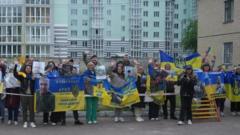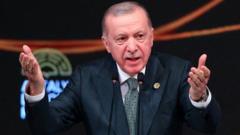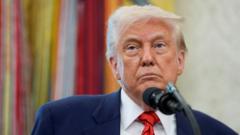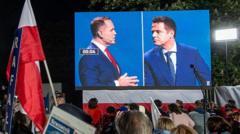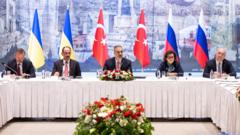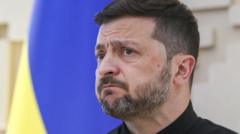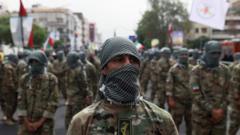Despite the risks, Lowen's experience reflects the larger struggle for democracy in Turkey amidst increasing authoritarian control.
**BBC's Mark Lowen's Deportation: A Harrowing Encounter with Turkish Authorities**

**BBC's Mark Lowen's Deportation: A Harrowing Encounter with Turkish Authorities**
Mark Lowen recounts the challenges faced while covering protests in Istanbul, culminating in his deportation.
Mark Lowen, the BBC correspondent, experienced a shocking turn of events during his return to Istanbul to cover the anti-government protests that erupted following the arrest of mayor Ekrem Imamoglu. Just days into his assignment, a phone call from the hotel receptionist interrupted his excitement about being back in Turkey.
Upon arriving at the reception, Lowen was greeted by three plain-clothed policemen, who requested his passport and proceeded to escort him away while attempting to block his colleagues from documenting the interaction. During his initial three-day coverage of the protests, he felt at home, surrounded by the lively spirit of the city.
Initially held at police headquarters for seven hours, Lowen found the environment surprisingly cordial, with some officers expressing dissent towards the government's stance. However, this soon changed when he was transferred to the foreigners' custody unit, where he faced a marked shift in tone. Here, Lowen encountered a stark reality as he was fingerprinted and stripped of access to legal support or external communication.
By early Thursday morning, he was handed deportation papers citing his status as a "threat to public order," a government decision articulated with little context. A police officer suggested a misleading step to declare he was leaving voluntarily, which he declined.
After several hours of solitary confinement at the airport’s custody department, Lowen was finally placed on a flight to London. Subsequently, the Turkish government issued a statement claiming he lacked proper accreditation—an assertion they had not communicated during his detainment.
While Lowen felt grateful for a network of support from BBC management and the British Consulate, he remained acutely aware of the precarious situation faced by many journalists in Turkey. Historically, Turkey has been scrutinized for its clampdown on freedom of press, as illustrated by the detainment of journalists during the ongoing protests.
These demonstrations, ignited by Imamoglu's arrest, reflect a broader demand for democracy in a nation grappling with authoritarianism. The steadfastness of President Erdogan, dismissing the protests as mere "street terrorism," highlights the delicate balance of power within the country, raising questions about the future of dissent in Turkey. As protests continue, it remains to be seen whether the movement can sustain its momentum against Erdogan's regime.



